Recently I was asked by one of our major clients to run a workshop for their staff on personal finance. Now whilst in our approach to helping managers with their financial acumen skills, we often start with personal finance before progressing to business finance – demystifying all the jargon and terminology – this is the first time we have been asked to run standalone sessions on this topic.
However for many years, I have been very aware of the exceptionally high levels of personal debt which is prevalent in Australia – and I do not think that the Federal Election is going to change that!
So in designing this workshop, we looked at the current published data:
- 1 in 3 Australians are suffering from financial stress.
- 66% of those with financial stress said their money worries led to feelings of fear, depression and anxiety (3 times higher than people unaffected by money problems) (CoreData survey). 23% are just getting by, 13% are struggling (ASIC).
- Research on financial wellbeing in the Australian workplace found that, on average, financially stressed Australian employees lose 6.9 hours of productive work a week and are absent four days a year due to stress-related illness. (AMP Study).
- It is estimated that over the next three years, interest-only loans worth a combined total of about $360 billion will roll over to interest plus principal — so that means borrowers will face higher repayments.
One of the most surprising findings of the CoreData Survey was that financial stress is not only experienced in low-income households. Respondents on salaries of up to $150,000 a year with investments of up to $750,000 were only marginally less financially-stressed than those who earned up to $90,000 with investments up to $350,000. Women were more likely to be financially stressed than men.
At Financial Training Australia we demystify finance, but we are not financial advisers. Therefore the workshop which we have designed is a practical step by step guide to enable all staff to set realistic financial goals, understand and track their current finances and develop a plan. The objective is to educate them on how to take back control.
We have incorporated lots of practical tips and tricks and expect to be continually adding to the materials after each session as we learn from participants.
If this is something that might be of interest to your staff, please email me at cherry@financialtrainingaustralia.com or ring us on 03 9510 9401.








